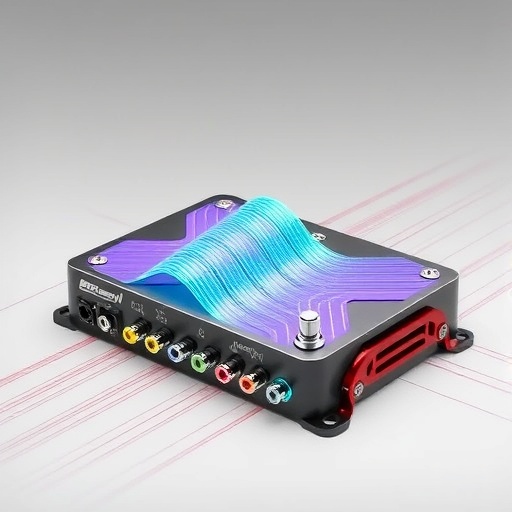High-fidelity qubit measurement stands as a cornerstone in the evolving realm of quantum computing architectures. Particularly within superconducting systems, the measurement of qubits has progressed to a level where a meticulous approach is necessary to ensure accuracy and reliability. Currently, the conventional methodology relies on probing a readout resonator through a delicate microwave tone. This signal must undergo amplification before it can effectively reach the room-temperature electronics for processing. Herein lies the significance of employing superconducting parametric amplifiers, which have emerged as the preferred choice for initial amplification stages. Their remarkable low-noise performance is impressive, as it approaches the quantum limit, providing critical enhancements to measurement fidelity.
However, the integration of superconducting parametric amplifiers is not without its challenges. These amplifiers typically necessitate additional components such as isolators and circulators. These components are vital for the proper routing of signals throughout the measurement chain while simultaneously protecting qubits from the noise amplified during the signal processing stage. While these commercial components are noted for their broad bandwidth and relative ease of use, a closer examination reveals some downsides. The intrinsic loss associated with these components, alongside their physical size and stringent requirements for magnetic shielding, contribute to decreased measurement efficiency and present obstacles to scaling quantum systems effectively.
Recent advancements reported in a pioneering study introduce a novel alternative in the form of a parametric amplifier that concurrently achieves broadband forward amplification and backward isolation. This innovation is encapsulated within a compact, non-magnetic circuit that holds promise for seamless integration on a chip with superconducting qubits. This evolution in design signifies a crucial step forward in the quest for more efficient quantum measurement systems, potentially revolutionizing the methodology employed in scaling superconducting quantum computers.
The innovative approach hinges on the utilization of a nonlinear transmission line that is engineered to support travelling-wave parametric amplification of forward-propagating signals. This architecture is remarkably effective in not only amplifying signals traveling in the desired direction but also ensuring isolation through the frequency conversion mechanism applied to backward-propagating signals. Such dual functionality within a single device not only alleviates the burdens associated with additional components but also optimizes the overall measurement infrastructure, a critical requisite as the scale of superconducting quantum computers continues to grow.
One of the noteworthy implications of this new design is the potential reduction in overhead related to readout hardware, a prevalent issue that has historically posed challenges in quantum systems as they expand. The cascading complexity of integrating multiple components often leads to increased physical footprint and loss in measurement fidelity. By providing a single device that encapsulates both amplification and isolation, this approach permits a more streamlined assembly, fostering not only efficiency but also paving the way for more compact quantum computing solutions conducive to broader application.
Empirical validation of the proposed travelling-wave parametric amplifier and converter showcases its promising characteristics. Early tests indicate that it delivers the low-noise performance requisite for high-fidelity qubit measurement, simultaneously facilitating a straightforward implementation that could become standard in future quantum architectures. The benefits extend beyond mere functionality; this innovation also signifies a leap toward scalability, which has remained a pervasive concern in the quantum computing community.
In essence, achieving advancement in quantum measurement technologies is imperative for the progress of quantum computing. As systems grow increasingly complex, the need for efficient readout mechanisms becomes even more critical. The introduction of a compact and integrated amplifier-converter duo presents a pathway to overcoming existing limitations, potentially guiding the trajectory of quantum technology development over the coming years.
Furthermore, in the long-term view, the integration of such components directly onto chips housing superconducting qubits could revolutionize experimentation and application in quantum computing, yielding an unprecedented level of measurement accuracy and operational efficiency. The benefits could resonate through many areas, from basic research to industrial applications in quantum technologies, emphasizing the importance of continued innovation in this critical field.
In summary, the evolution of measurement systems in quantum computing is being redefined by innovations that prioritize integration, efficiency, and reliability. The reported advancement, through a novel travelling-wave parametric amplifier and converter, stands as a testament to the potential for further breakthroughs. As researchers continue to explore and push the boundaries of quantum technology, this innovative approach marks a significant stride toward achieving scalable and efficient quantum computing architectures.
By delving deeper into the implications of this research and its potential application, the field grows closer to realizing its ambitious goals of leveraging quantum states for computation and information processing. The future of quantum measurements, emboldened by compact and efficient systems, points toward a new horizon where quantum computers may eventually reach their full potential, paving the way for new discoveries and technological advancements that could reshape our understanding of computation.
The pursuit of excellence in quantum measurement remains a top priority for researchers and engineers alike. This groundbreaking work not only illuminates the path forward in superconducting quantum computing but also underscores the importance of continual innovation in addressing the complex challenges that lie ahead in the quest for achieving meaningful and transformative quantum technologies.
Subject of Research: Advancements in superconducting qubit measurement technologies
Article Title: A travelling-wave parametric amplifier and converter.
Article References:
Malnou, M., Miller, B.T., Estrada, J.A. et al. A travelling-wave parametric amplifier and converter.
Nat Electron (2025). https://doi.org/10.1038/s41928-025-01445-8
Image Credits: AI Generated
DOI:
Keywords: Quantum computing, superconducting qubits, parametric amplifiers, measurement efficiency, integration technologies, scalability in quantum systems.




